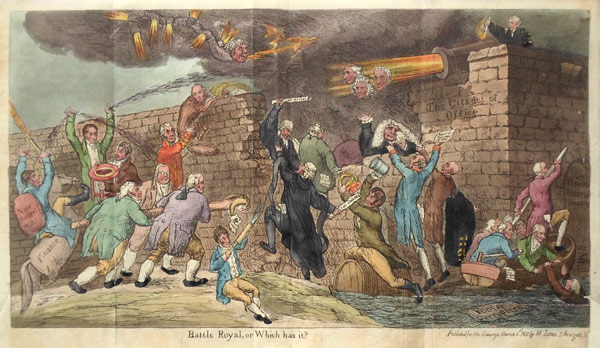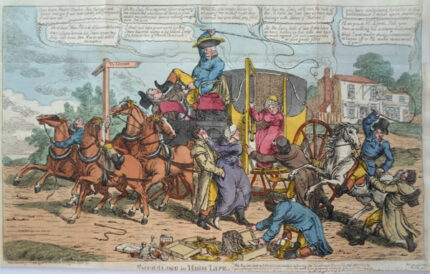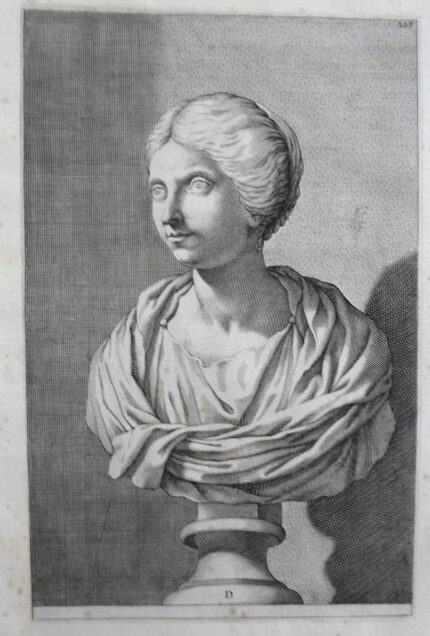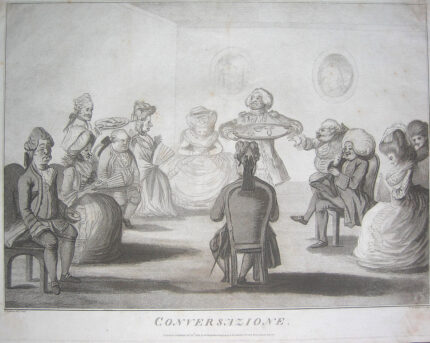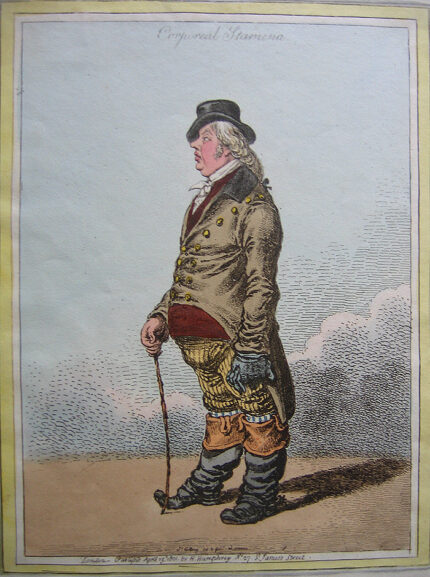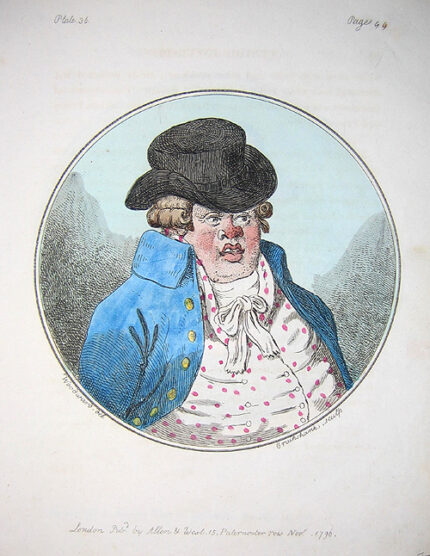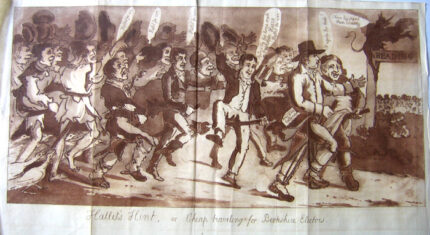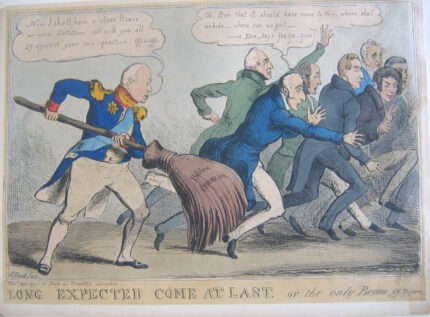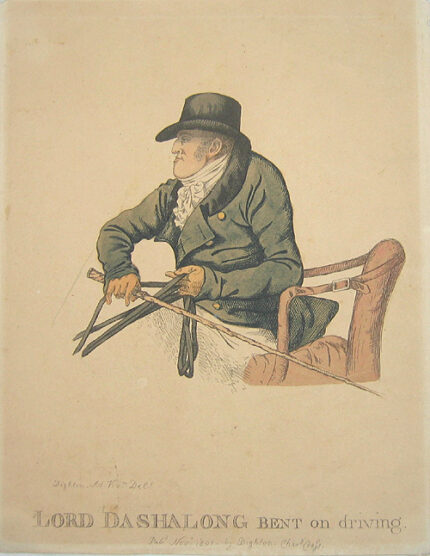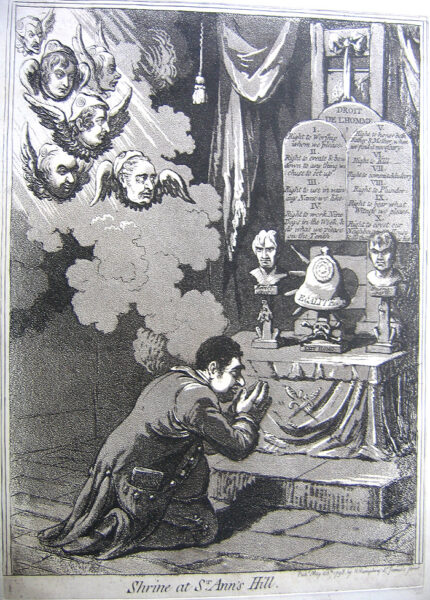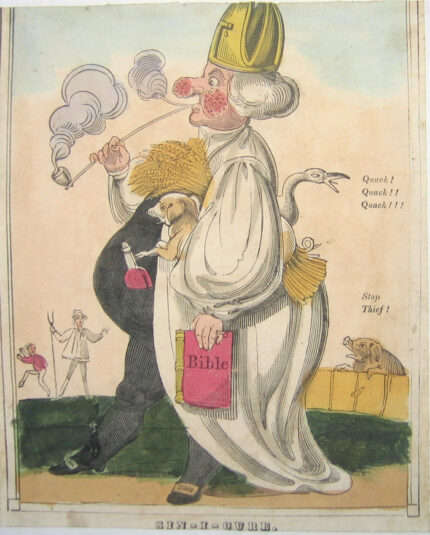Battle Royal, or Which has it.
£320.00
Samuel de WildeBattle Royal, or Which has it. London, M. Jones March 1st. 1811Etching with aquatintOriginal hand colouring219 x 371 mmTraces of old folds as issued, neat marginal repair.
Samuel de Wilde
Battle Royal, or Which has it.
London, M. Jones March 1st. 1811
Etching with aquatint
Original hand colouring
219 x 371 mm
Traces of old folds as issued, neat marginal repair.
£320
A satire on the hopes of the Opposition that the Prince would dismiss the Perceval Ministry on the establishment of the Regency, see No. 11705, &c. The print was out of date: at the beginning of February the Regent had declared his intention of retaining his Ministers, see No. 11709. It is fairly well informed on the divisions in the Opposition and their recent Cabinet-making. Lord Grey, in a debate on the Regency Bill on 28 Jan., violently attacked Eldon for putting the Great Seal to a Commission for giving the royal assent to Bills in 1804, while the King was incapacitated. ‘Parl. Debates’, xviii. 1051, cf. No. 11716. Erskine was the obvious Opposition candidate for the Chancellorship. Yorke’s believed readiness to resign the Admiralty is expressed in his attitude; he did resign in Jan. 1812, but not from sympathy with Opposition; Whitbread, despite his pacifism, had been suggested for the place. ‘H.M.C., Dropmore Papers’, x. 98. Romilly had been at first intended to succeed Gibbs as Attorney-General; his important Bill to amend the Bankruptcy Laws was passed in 1809 (49 Geo. III, c. 121). Holland, see No. 11710, and Moira were among the peers who opposed the resolutions moved by Perceval on 27 Jan. for the establishment of a regency under restrictions, see No. 11706. The Opposition, and especially the Grenvilles, stood for Emancipation, cf. No. 10709. The Burdettites are only indirectly concerned in the assault: Wardle merely collects unsavoury scandals, cf. No. 11219; Burdett slings more mud at the Opposition than at the defenders of the ‘Citadel’. Tierney was prospective Chancellor of the Exchequer in a Whig Ministry; he had taken a prominent part in the Bullion Committee, see No. 11576; his ineffective pistol anticipates the rejection of its findings in May. Canning, Castlereagh, and Sidmouth were potential adherents of either Perceval or the Whigs, but their mutual antipathies were great. Canning had voted against the Government on the Regency question; his defence of Pitt on 2 Jan. 1811 is probably indicated by the allusion to his poem. ‘Parl. Debates’, xviii. 665-70. Sheridan is correctly represented as aloof from the Opposition groups and emitting fireworks. M. Roberts, ‘The Whig Party, 1807-1812’, 1939, pp. 363-5. The substitution of Melville for Liverpool (the third Secretary of State) is odd

